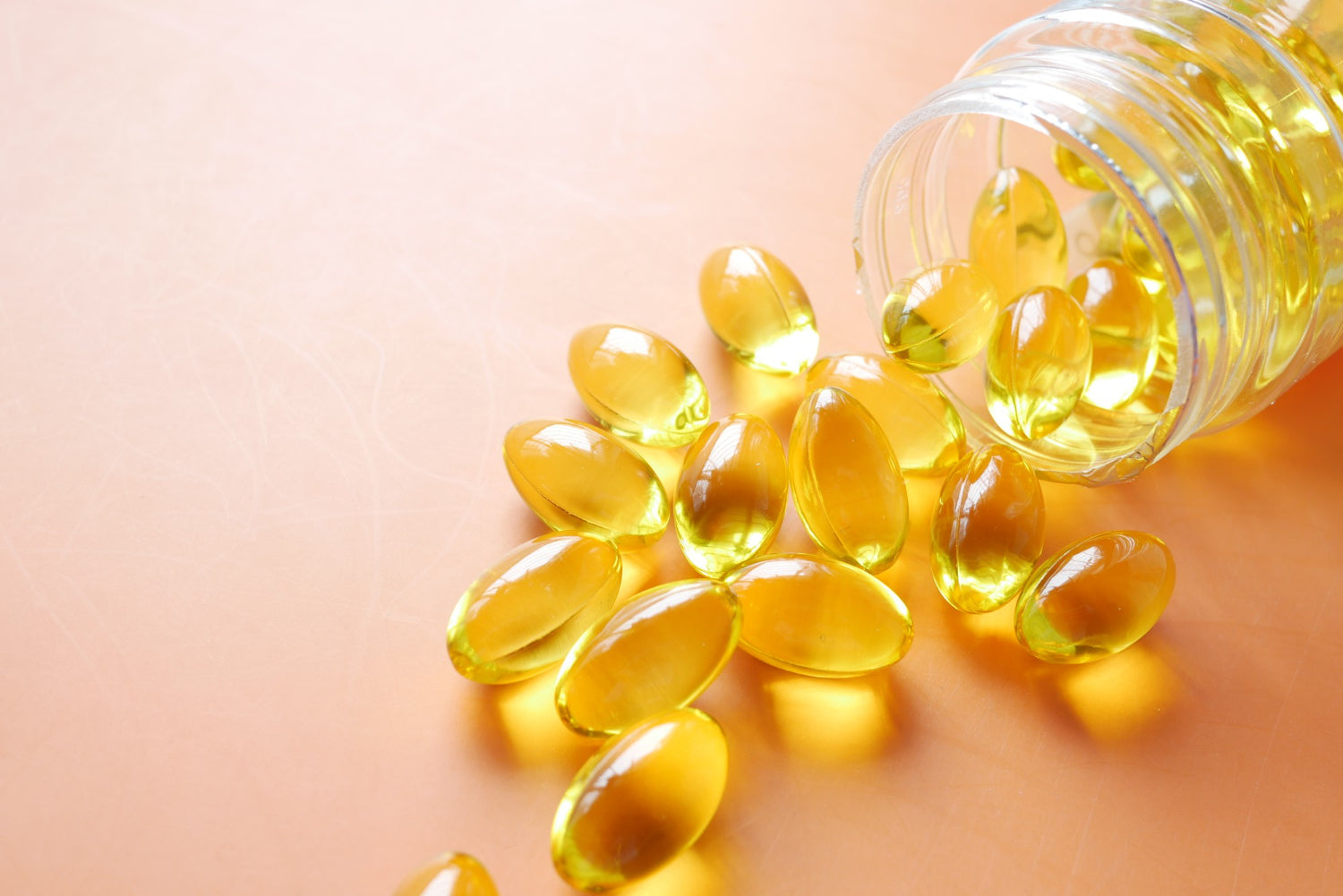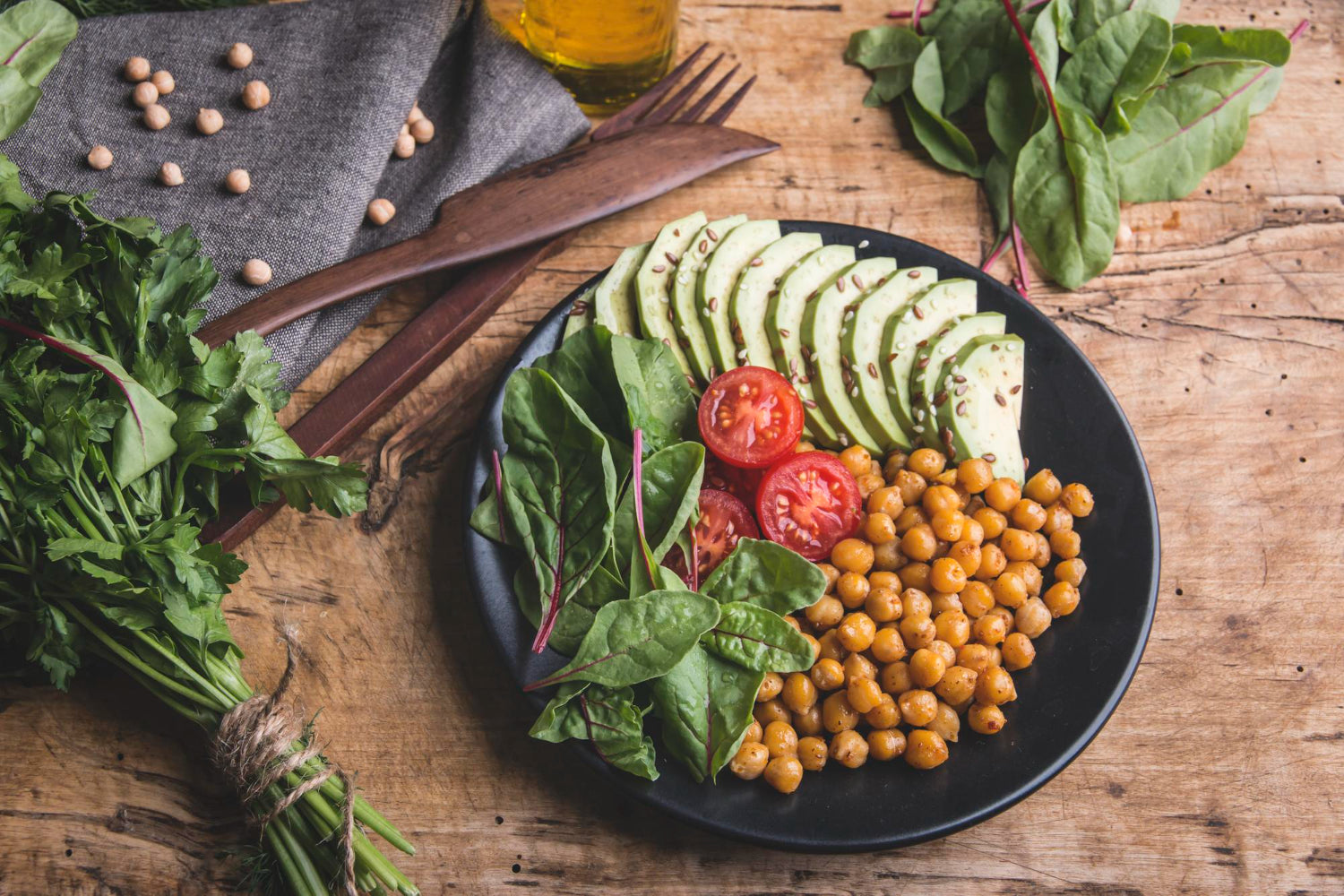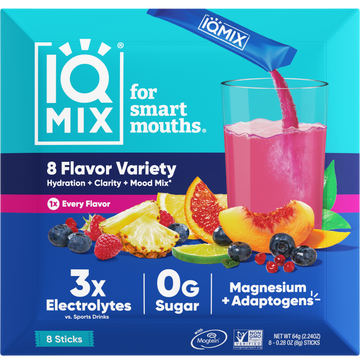Ever dream of discovering the mythical fountain of youth? While the promise of eternal vitality may only exist in legends, a powerful antioxidant comes pretty close: vitamin E.
Science shows this nutrient may safeguard your brain, give your skin that forever-young radiance, and support your overall health like a magic potion. Yet nearly 90% of Americans don’t meet their recommended daily intake goal![*]
So let’s explore why you should stop sleeping on vitamin E and how to get more of it.
Meet Vitamin E: An Antioxidant Free Radical Fighter
Vitamin E is the collective name for a group of fat-soluble vitamins (like vitamin A, vitamin K, and vitamin D) with potent antioxidant properties.[*] There are eight naturally occurring forms of vitamin E, including tocopherols and their related tocotrienols.[*] Like all antioxidants, this squad lives to fight free radicals.
Free radicals are unstable molecules that prowl around your body, looking to cause trouble and mess up your cells. The damage they inflict — oxidative stress — is linked to a long list of age-related health concerns, including chronic inflammation, obesity, type 2 diabetes, heart disease, liver disease, cognitive decline, cancer, and more.[*]
Once vitamin E neutralizes harmful free radicals, it prevents them from destroying your cells, mutating your DNA, and accelerating the aging process. Can it help you live forever? Probably not. But it can help you live better and healthier.
6 Vitamin E Benefits To Supercharge Your Health
Vitamin E’s antioxidant prowess explains many of its health benefits. However, scientists must deal with a major barrier during their research: a lack of vitamin E biomarkers.[*] Even though studies are often mixed, evidence suggests that vitamin E may:
1. Prevent or Delay Cognitive Decline
Our brains are highly susceptible to oxidative stress, which increases as we age and significantly contributes to neurodegeneration.[*] But vitamin E embeds itself into brain cell membranes to shield them from harm.[*][*]
According to studies:
- Low vitamin E intakes often correlate with mild cognitive impairment (MCI).[*][*]
- Higher vitamin E levels are repeatedly associated with better cognitive performance.[*] Even older subjects with high vitamin E intakes perform significantly better on cognitive tests.[*]
- In one study, people with the highest vitamin E intake had a 36% lower rate of cognitive decline than those with the lowest intakes — equivalent to a cognitive age decrease of 8–9 years.[*]
- MCI was 85% less likely in adults with the highest vitamin E levels than the lowest.[*]
- Higher dietary intake of vitamin E significantly reduces the risk of dementia and Alzheimer’s disease and may slow the progression from MCI to dementia.[*][*][*][*][*]
Meeting your vitamin E goal may help you maintain your brain power, delay or prevent age-related cognitive decline, and keep you sharp well into your golden years.
2. Give Your Skin a Youthful Glow
Environmental stressors like UV rays and pollution constantly bombard your skin. These diminish its protective barrier function and skyrocket signs of premature aging (think: dark spots, fine lines, wrinkles, dry skin, etc.).
Vitamin E, especially when combined with antioxidant vitamin C, effectively reduces oxidative damage to your skin.[*] It can help fortify your skin against UV exposure, prevent and reduce sunburn, and boost collagen and elastin production to give your skin a supple bounce.[*][*][*] It’s also moderately effective at reducing dark under-eye circles.[*]
Thanks to vitamin E’s anti-inflammatory properties, it may even soothe irritation and promote wound healing, making it a potential ally for those with eczema and psoriasis.[*]
3. Protect Your Ticker from Heart Disease
Population studies (research on a large group over a long time) show that people with higher levels of vitamin E have a lower risk of heart disease, heart attacks, and death from heart disease.[*][*]
In fact, two studies revealed that people who consumed more than 7 milligrams/day of vitamin E were 35% less likely to die from heart disease than those who consumed half that amount.[*]
Researchers believe that’s because:
- Vitamin E protects cholesterol (lipids) from oxidation. Oxidized LDLs increase the risk of cardiovascular disease.[*]
- Vitamin E helps your body make red blood cells and widens blood vessels to improve circulation and prevent blood clots.[*][*][*]
4. Boost Your Immune System
Scientists say vitamin E is one of the most effective nutrients for immune function.[*] It empowers your body’s natural defenses and enhances your immune response so you can easily fight off pathogens.
Meet your intake goal, and you may become less susceptible to respiratory, bacterial, and viral infections — especially the common cold! — as well as allergic diseases like asthma.[*][*][*][*]
5. Lower Your Risk of Cancer
Oxidative damage to DNA by free radicals leads to mutations and cancer.[*] But vitamin E possesses anti-cancer properties, with its free radical-fighting ability to prevent cancer cell growth and deprive them of the nutrients they need to thrive.[*]
According to population studies on the effects of vitamin E and other antioxidants (like selenium, beta-carotene, flavonoids, etc.), people with cancer often have low levels of vitamin E.[*] Conversely, high intake levels correlate with lower cancer risks.[*]
In one study, participants supplementing with vitamin E had a 32% reduced risk of prostate cancer than those taking a placebo.[*]
However, even though recent evidence suggests that dietary vitamin E is cancer-preventive, high-dose vitamin E supplements may actually carry an increased risk of cancer.[*]
6. Protect Your Eye Health
Did you know that cataracts occur due to an accumulation of proteins damaged by free radicals?[*] Researchers in one study discovered that people with the highest amount of vitamin E in their diets had a 17% lower risk of developing cataracts than those with the least.[*]
When combined with antioxidants like zinc and vitamin C, vitamin E may also prevent and slow the progression of age-related macular degeneration (AMD) and vision loss, the leading cause of legal blindness in people over 55 in the US.[*][*]
In one study, people with relatively high dietary intakes of vitamin E had a 20% lower risk of developing AMD than those with the lowest intakes.[*]
So now that you’re stoked about all the benefits of vitamin E for your health and longevity, let’s dive into:
How To Reach Your Vitamin E Goals
According to the National Institutes of Health, the recommended dietary allowance (RDA) for vitamin E is 15 mg/day or 22.5 international units (IU) for healthy people. Those who are breast-feeding should aim for 19 mg/day (28.5 IU).[*][*]
Though vitamin E deficiencies are rare, people with conditions that affect digestion or intestinal health (like Crohn’s disease, cystic fibrosis, inflammatory bowel, etc.) may have difficulty absorbing fat and vitamin E, requiring higher intake levels.
You can achieve your vitamin E goals via:
Whole Food Sources of Vitamin E
The vitamin E naturally present in whole-food sources isn’t harmful and doesn’t need to be limited.[*] You can build a vitamin E-rich menu with a selection of:
Though experts agree a balanced diet full of whole foods is the best way to snag your daily dose of vitamin E, you can also find:
Vitamin E Supplements
The vitamin E that occurs naturally in foods (d-alpha-tocopherol) isn’t the same as the high doses of vitamin E found in dietary supplements and most multivitamins (dl-alpha-tocopherol). Synthetic vitamin E is less bioavailable and carries greater risks of side effects when taken in high doses.[*]
Though the RDA for vitamin E is between 15–19 mg/day, supplements often contain 100–1,000 IU.[*] For reference, 1 milligram equals 1.5 IU. Clinical trials typically use 400–800 IU per day, but supplemental vitamin E should not be taken over 1,000 IU.
Vitamin E supplements can interfere with certain medications, so seek medical advice from a dietitian or healthcare provider if you take this route.
Grab an IQBAR for 100% of Your Daily Vitamin E! 🙌
How often can you say the easiest option is actually the best?
Every vegan, keto-friendly, ultra-clean label IQBAR delivers 100% of your RDA for vitamin E. They’re also packed with key brain and body nutrients to promote strength, satiety, mental sharpness, and lower stress levels.
It’s the tastiest way to achieve your vitamin E goal, satisfy snack cravings, and support your body and brain with the nutrients it craves.
😋 Treat yourself (and your taste buds!) to the IQBAR 7-Bar Sampler! You’ll score one bar of every flavor (Chocolate Sea Salt, Peanut Butter Chip, Almond Butter Chip, Toasted Coconut Chip, Lemon Blueberry, Banana Nut, and Wild Blueberry). It’s a risk-free way to try all your vitamin E options.
So How Much Vitamin E Will You Be Getting?
Now that you’re a vitamin E expert, we hope you’ll never be part of that 90% of Americans who don’t reach their daily intake goal. This antioxidant may not be the Fountain of Youth, but noshing more is a proactive step to safeguarding your physical health, brain power, good looks, and overall well-being.
😎 Psst! Want to put filling up your vitamin E tank on autopilot? Find your favorite IQBAR flavor, then subscribe for automatic deliveries to save 15% off every order!
Written by Lauren Ciccarelli, a writer and research geek passionate about low-carb nutrition, mental health, and meditation. Her 2,500+ articles empower doers with science-backed tips for leveled-up living.




